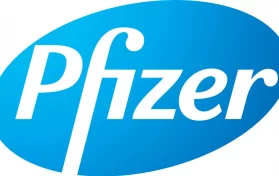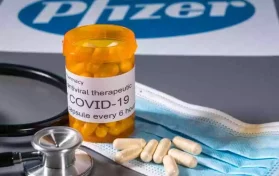
On Wednesday, the Food and Drug Administration approved the Pfizer oral medication, Paxlovid, for widespread use. On Thursday, the oral medication developed by Merck, Molnupiravir, was also approved for use.
The Molnupiravir pill is approved for adults ages eighteen and over, while Paxlovid is for high risk individuals over the age of twelve. Merck’s pill is for those who have tested positive for COVID-19 and are at high risk of dying or of being hospitalized from the virus.
Both the Molnupiravir pill and the Paxlovid pill are taken orally. Patients can take them at home. The approval of these pills give the public and doctors a way to treat the infection in its early stages.
The approval of these therapeutics comes as a surge in COVID-19 numbers is expected due to the Omicron strain, which the CDC has said is the most dominant strain in the United States as of this week.
The director of the Food and Drug Administration‘s Center for Drug Evaluation and Research, Dr. Patrizia Cavazzoni, commented, “As new variants of the virus continue to emerge, it is crucial to expand the country’s arsenal of COVID-19 therapies using emergency use authorization, while continuing to generate additional data on their safety and effectiveness.”
The Food and Drug Administration warned consumers that the pill is not a replacement for the current vaccines in place to combat COVID-19, and the agency also stated that Molnupiravir is not a preventative drug.
Both Molnupiravir and Paxlovid are intended to be used to lessen the symptoms of COVID-19 infections, and it is the intent of the manufacturers that the drug prevents hospitalizations, particularly among those who are high risk.
While Paxlovid is available for children over twelve as well as adults, and it is intended to lessen the symptoms of COVID-19, Merck’s pill is only meant to be available in the event other methods of treating the COVID-19 virus are unavailable.
Both pills are intended for those who are considered high risk. However, some health issues such as high blood pressure or obesity can qualify a patient who has tested positive for Paxlovid. The conditions for which a person would be considered at risk and eligible for Merck’s pill have yet to be listed.
The Merck pill prevents the COVID-19 virus from replicating. The pill does this by introducing errors into the virus’ genetic code. A treatment regimen consists of forty pills taken over the course of five days. Patients will need to take a 400 milligram pill every twelve hours.
The regimen for Paxlovid has not been released to the public.
The Merck pill has been shown in clinical trials to reduce death and incidents of hospitalizations in patients aged eighteen or older who tested positive for COVID-19. Of the 709 people in the trail took the Merck pill, only 6.8 percent were hospitalized or died as a result of contracting COVID-19. Of the patients who took the placebo, 9.7 percent died or were hospitalized.
One individual who took the Merck pill died during the follow-up period.
The pill is not recommended for pregnant patients. Studies show it may cause fetal harm.
Merck has agreed to provide the United States government with 3.1 million pills. The distributor is expected to begin shipping pills within days.





